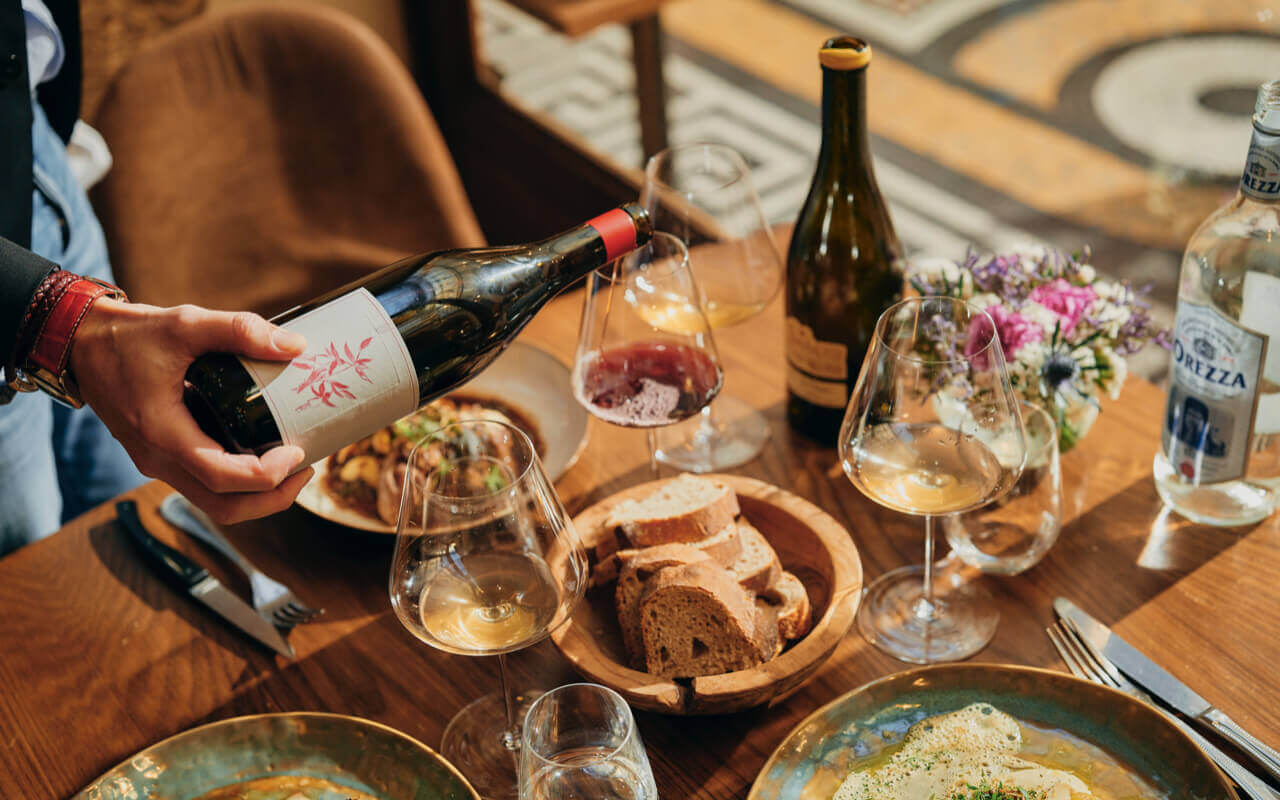Sharing a glass of wine goes beyond the simple pleasure of tasting it. This gesture evokes a bond, an emotion, a sincere moment. For centuries, it has accompanied our celebrations, meals and discussions. In France, as elsewhere, wine embodies a rich and vibrant culture.
If you're interested in wine-related articles, download our app for IOS or Android. It will give you access to our wine lexicon, our articles and our innovative solution, designed for all wine consumers and collectors.
The birth of a wine ritual
The history of wine goes back to antiquity. The Greeks and Romans were already drinking wine at their banquets. This beverage was not reserved for the elite. It was circulated among guests, reinforcing the idea of community. Wine and conviviality quickly became inseparable in the collective imagination.
In ancient societies, wine marked important gatherings. Offering wine to a guest meant welcoming him with honor. The symbolism has been preserved. Even today, a meal among friends without wine seems incomplete to many.
A tradition firmly rooted in French culture
Wine culture in France goes beyond simple consumption. Wine accompanies life's major milestones: weddings, birthdays, religious celebrations - every moment is celebrated with a well-chosen bottle. France's wine-growing regions have succeeded in linking their identity to wine, creating a deep-rooted attachment.
In families, the transmission of a taste for wine begins early. We learn to taste, to recognize aromas and to talk about them. This intergenerational bond strengthens the French wine tradition. It's not just about drinking, it's about understanding, appreciating and sharing.
Wine, a pretext for encounters

Over a glass of wine, barriers come down. Wine invites discussion. It relaxes, but above all, it brings people together. A dinner with colleagues can be relaxed more quickly with a good bottle. An impromptu aperitif becomes a warm moment thanks to wine.
In a world that's often stressed and in a hurry, these moments take on added value. Wine encourages slowness, exchange and sincerity. It becomes the catalyst for a rare and precious conviviality.
A common language for all enthusiasts
Talking about wine is also about creating links. Wine lovers like to share their favorites, their discoveries, their preferences. They exchange tips and anecdotes. This common language unites very different profiles.
Around a table or at a tasting, everyone can participate. We comment on the color, guess the grape varieties, share impressions. This ritual makes wine much more than a drink. It becomes the center of a genuine dialogue.
The central role of meals
France's wine culture is largely built around the table. Every dish calls for a wine. Successful pairing reinforces the experience. Meals become privileged moments when we take the time to be together.
Food and wine pairing is not just a question of taste. They are also a game, a search for balance, an invitation to experiment. This shared pleasure makes wine an essential part of French conviviality.
An art of living valued worldwide
Wine and conviviality are not limited to France. The whole world admires this art of living. French wine symbolizes elegance, moderation and a taste for sharing. It inspires many cultures to recreate this unique atmosphere.
Exporting wine is often accompanied by the transmission of codes: service, temperature, pairings. These elements convey a refined, warm image of the French way of life.
Wine in cafés and bistros

In France, bistros have long been the places for conviviality par excellence. Wine played a central role. A glass shared between regulars, a lively debate over a pitcher - all part of the decor.
Even if habits change, these places endure. Wine remains a powerful symbol. It marks a break in the daily routine. It brings strangers together, strengthens relationships and enlivens conversations.
Wine as a vector of emotions
Wine is more than just its aroma or color. It evokes memories, emotions and places. A shared bottle becomes a sensory memory. It leaves its mark, even years later.
This emotional power reinforces its status. Wine and conviviality go hand in hand, because wine touches people. It accompanies happy moments, but also those when the support of a loved one makes all the difference.
The evolution of contemporary practices
Today, the French wine tradition is adapting. The younger generation is discovering wine in a whole new way. Urban tastings, workshops with friends, oenological picnics: everything becomes a pretext for sharing.
Wine is becoming more democratic without losing its nobility. It seduces with its accessibility, diversity and history. Conviviality remains at the heart of this evolution. We drink less, but better, and above all together.
Wine, a symbol of lasting social cohesion
At a time when digital technology is taking over, wine brings us back to reality. It creates contact, exchanges and authenticity. It's the opposite of fast, impersonal consumption.
Offering a wine, inviting people to discover it, suggesting a tasting - these are powerful gestures. They strengthen bonds, ease tensions and celebrate friendship. Wine remains one of the few simple pleasures that can be shared by all.
If you enjoyed this article, please read the following one "The influence of limestone soil on white wines"which may also be of interest to you!





